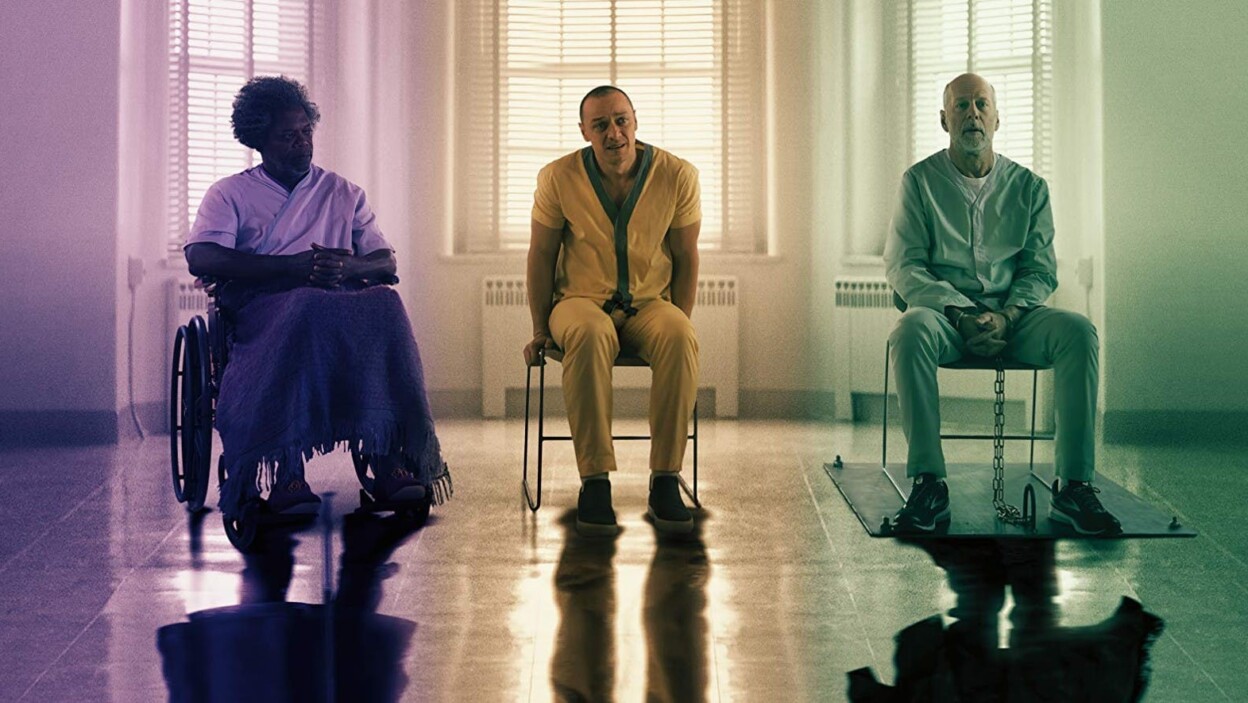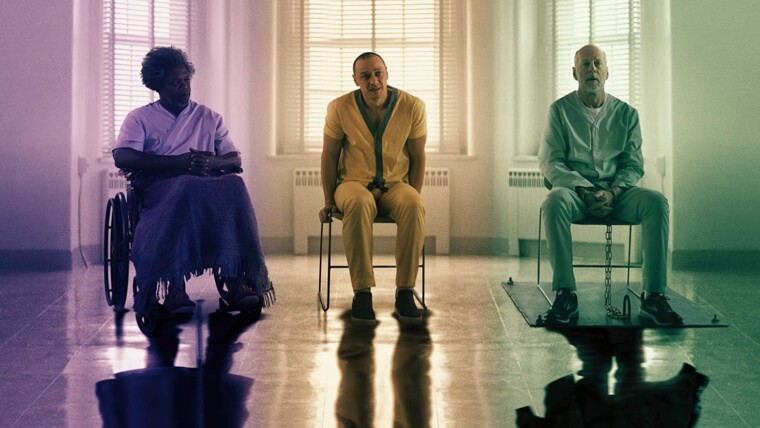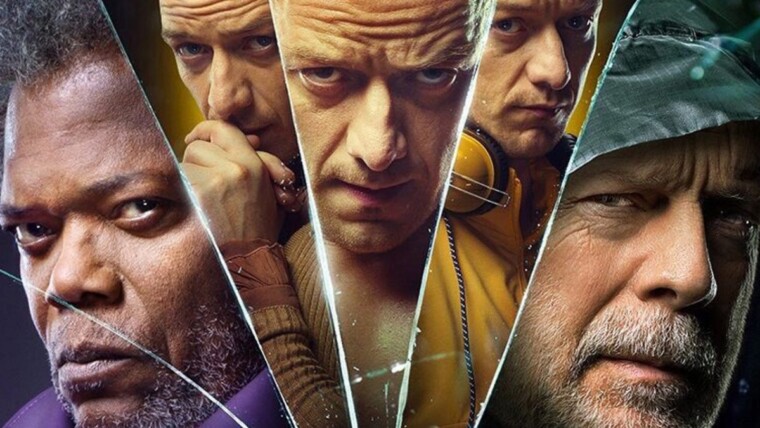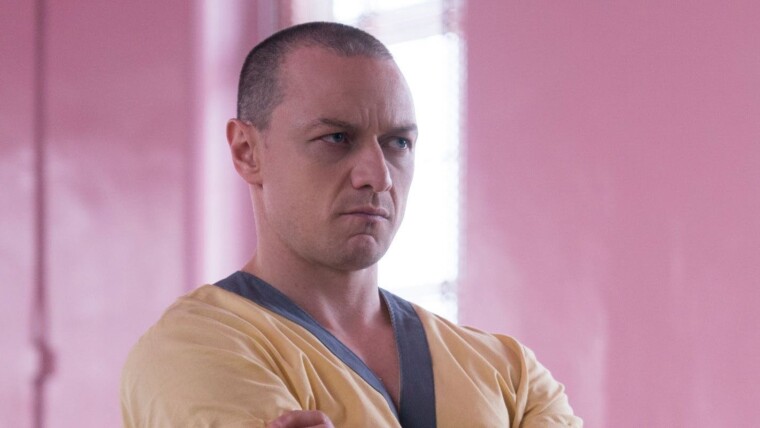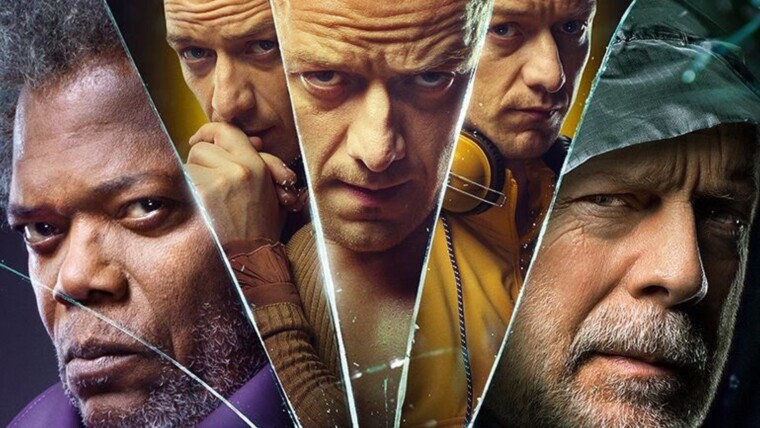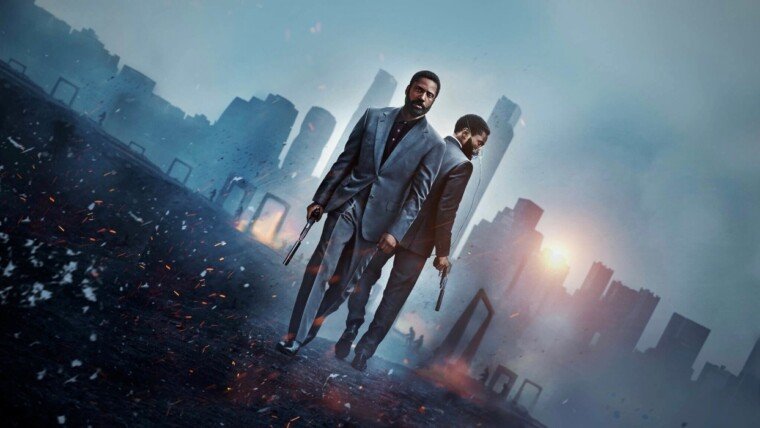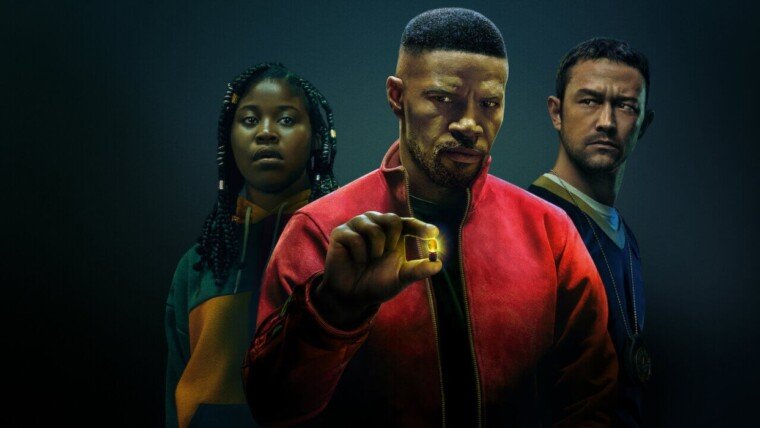This review contains spoilers.
Before we talk about Glass, I think it’s important to discuss M. Night Shyamalan as a filmmaker. Whether you love his films or hate em — boy has he given us plenty of films to hate — there’s no denying that the man is one ballsy SOB. He’s never come off as a conveyor belt factory-minded director, like say Michael Bay, whose even good movies feel somewhat unremarkable. M. Night always tries his damndest and lets his imagination run wild. He’s willing to push boundaries. And for that, he is one of the most inspiring helmers working in world cinema today.
After a string of films post-The Village that are interesting cases of horribly failed experiments — scientists have actually cited The Last Airbender as the number one cause of brain cancer of the 2010s — that effectively turned Shyamalan from ‘the next Alfred Hitchcock’ to ‘the next headliner on SNL’ the Indian-American director came back strong in 2015 with The Visit.
But it was in 2016 with Split that Shyamalan kicked our asses Bruce Lee style and showed the world that he hasn’t lost his touch. Not only was Split a highly engrossing psychological thriller in its own right, its WTF ending made film nuts around the world collectively orgasm. In a time where everybody wants to market their film as the next hot shit universe starter, Shyamalan made a sequel to his superhero movie Unbreakable completely under the radar and without advertising it as a such.
Since then, fans have been waiting on all fours with our tongue sticking out, salivating like starved puppies in anticipation of Glass, the culmination of what is now being called the Eastrail 177 trilogy. And well, having watched the film twice, I can confidently say that… it has delicious story beats. I’ve also got a feeling that people will be arguing over this film for many years to come and that’s better than a film where people shrug their shoulders and say “it’s pretty decent, I guess.”
The plot: David Dunn (Bruce Willis), The Beast (James McAvoy) get admitted into a psychiatric facility with Mr. Glass (Samuel L. Jackson). There, Dr. Ellie Staple (Sarah Paulson), who specialises in treating a “specific type of delusion of grandeur,” as she puts it, tries to convince them that they’re not actually extraordinary human beings who can bend bars and climb walls, but rather regular men who have suffered trauma in the past and have developed these delusions as a coping mechanism.
It’s a mouthwatering conceit. What if the reason bullets bounced off The Beast’s chest is not because he is bulletproof, but because they were old and the gun was faulty? What if there’s a perfectly logical explanation for the apparently gravity-defying wall-climbing? What if Dunn — now dubbed The Overseer by social media folks — started convincing himself he’s strong after a bunch of bullies drowned and almost killed him as a little kid.
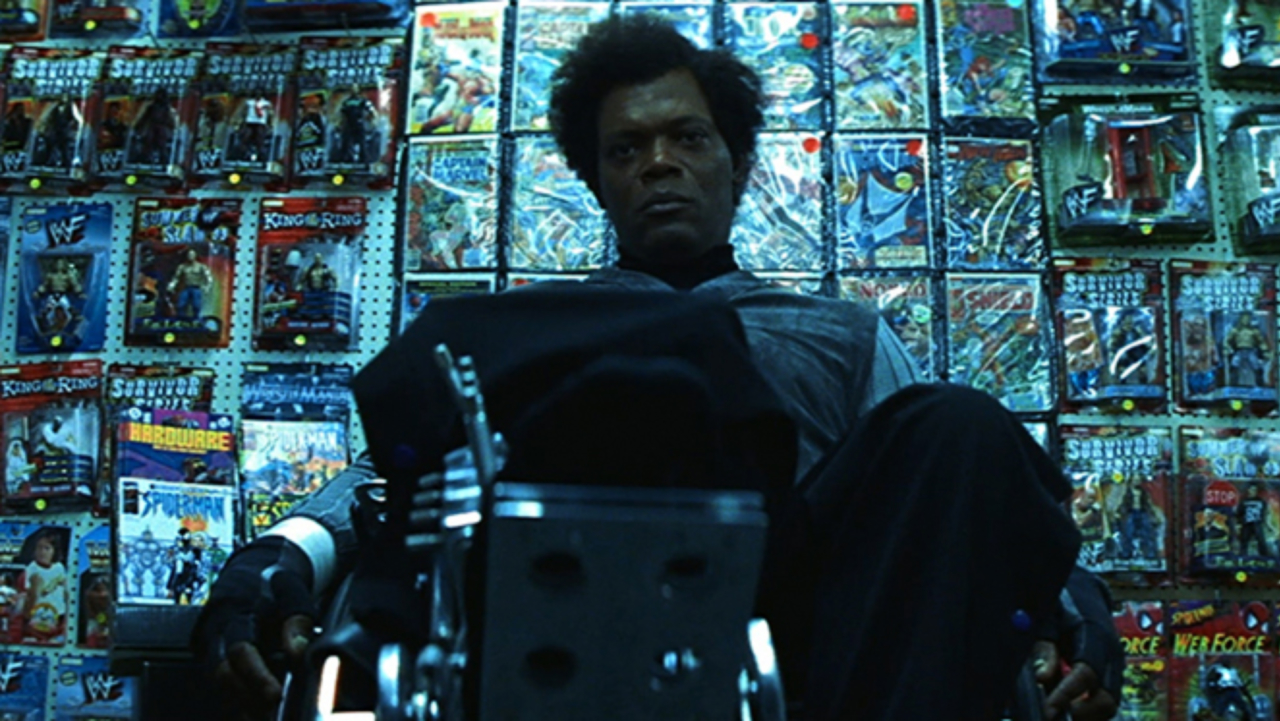
Glass is an interesting subversion of the superhero genre. If you’re hoping for this to be Shyamalan’s version of The Avengers, you will be disappointed. This film has a sprinkle of action sequences in it, but they’re neither bombastic nor the point. Glass isn’t so much about three characters coming together in a battle of epic proportions, rather a discussion on the very idea of superheroes living among us. It’s about one man’s belief. Mr Glass believes it in his brittle bones, that comic books and the characters that reside in them aren’t works of pure-fiction, but exaggerated literature based on truth.
He also believes that he is special; that he is a creator (a twist that happens later in the movie reveals Kevin Wendell Crumb’s father riding the same train as David Dunn all those years ago… the train that Mr Glass derailed… the crash that killed everybody except Dunn. The death of Kevin’s father meant that he had to spend his childhood with his abusive mother, which traumatised him, birthing his multiple personalities and The Beast along with it). In his mind, he created light and darkness along with it, for there can be no Rey without Kylo Ren. On the opposite end of the spectrum, Dr. Ellie Staple (Sarah Paulson delivers the right amount of creepy) is doing everything in her power to convince him that he’s nothing but a sick man with a wild imagination.
The conflict in the film doesn’t centre around good and evil, rather around the question are there Gods living among men? That’s what makes Mr Glass such a refreshing villain. He isn’t trying to take over the universe or vanquish anybody. He’s merely determined to prove to himself and the world that he’s right (which he is, by the way). He’s ferociously single-minded, so driven towards his goals, that he’s willing to engage in immoral and criminal acts if it means reaching his destiny. Even at the end, when he dies and his creations with him, it feels like he won the war. And we’re glad he did. “You were spectacular,” says Mr Glass’ mom. Indeed he was.
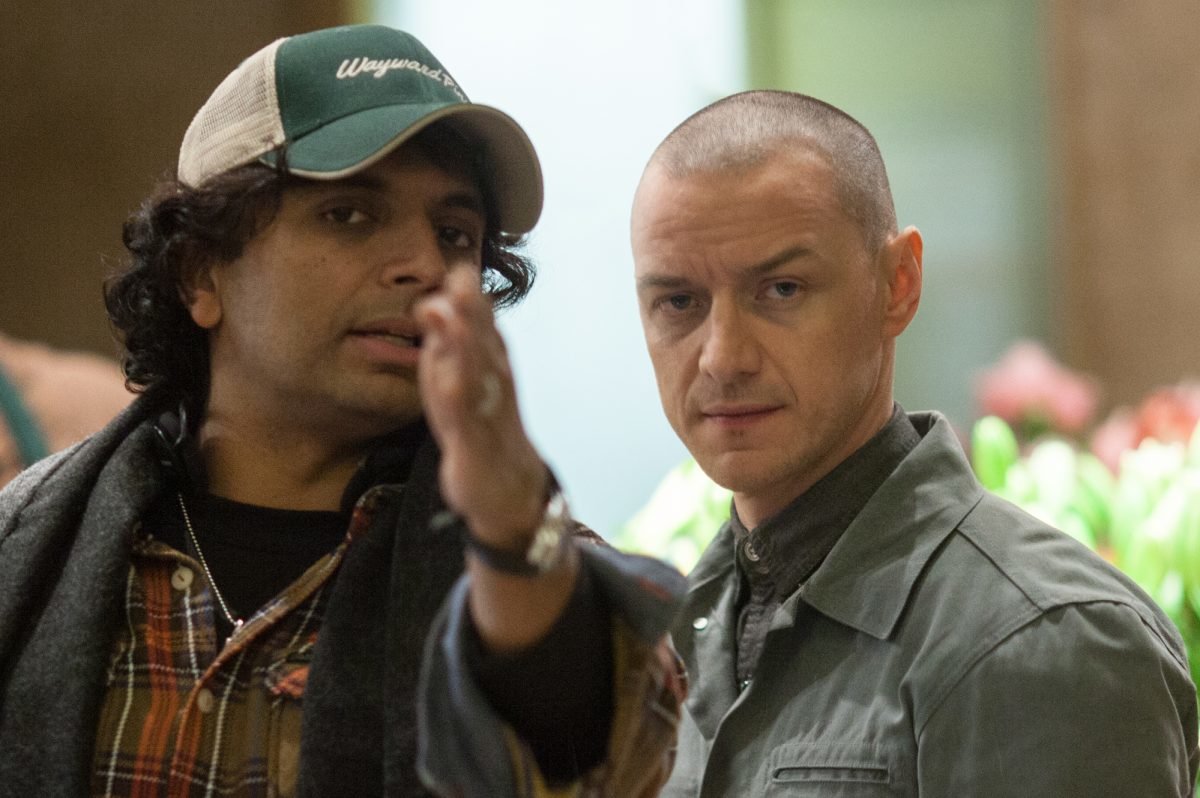
I love it when filmmakers take the superhero genre and does interesting things with it. And Glass feels like an auteur’s product. There is, however, one glaring problem. M. Night’s screenplay doesn’t quite live up to his thematically rich, almost poetic ideas. Thematically, Glass is a sequel to Unbreakable. But it doesn’t feel that way when we look at the overall picture as both Mr Glass and David Dunn are sidelined for a vast majority of the film, while Kevin Wendell Crumb and his 952 personalities hog the spotlight — it feels like a Split sequel.
Side note: It’s ridiculous how good McAvoy is here. RIDICULOUS. In an age where the greatness of an actor is measured by how much makeup and prosthetics they have on or how raw the bison meat was consumed, here we have an actor simply wearing a tracksuit, looking directly into the camera and performing as if his mom’s life depended on it. Every single personality feels distinct and nuanced, with its own voice, traits and mannerisms. Each personality feels like they’re being played by different actors altogether. HOW? Every time McAvoy popped up on screen, I found myself entranced, unable to look away.
The issue is that while these sequences are entertaining as all hell in isolation, rarely do they drive the narrative forward in a meaningful way because ultimately The Beast is just a pawn on the chessboard. He’s a supporting character of the narrative that is given a lead’s screen time. So they come off as filler scenes. Scenes that are used to distract us from Shyamalan’s faulty screenplay. And it almost worked too.
Then there’s Dr. Ellie Staple, whose motif is intriguing in concept. Why then is there only one sequence where she attempts to convince them of their delusions? Even then, it’s too simple. David Dunn has been lifting people and throwing them at walls with ease for years; The Beast has bent bars and scaled flat walls, so why did they buy Dr. Ellie’s story just like that? How did they let one conversation crush their spirits? M. Night Shyamalan also doesn’t do enough to make us, the audience, question what’s real and what’s not, something Steven Soderbergh did exceptionally well in Unsane.
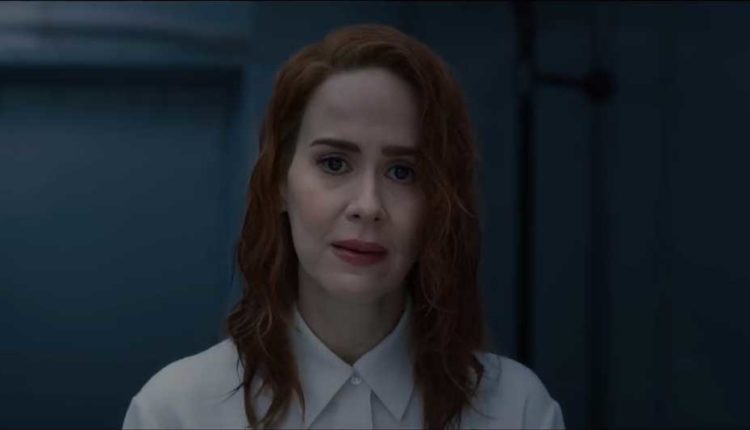
What’s even more surprising, especially coming out of Shyamalan, is the lack of visual storytelling. The opening sequences are wonderfully envisioned by Shyamalan and lensed by Mike Gioulakis. At one point we see David tail a small-time criminal. The sequence is shot like pure horror. We see David’s shadow looming as the tension increases. There’s also a scene at the beginning of the third act where Mr Glass wheels away and chaos unfolds in the background, slightly unfocused. But a large majority of the second act just has characters looking straight into the camera (there are so many close-up shots throughout) and talking. Nothing much goes on. Glass is void of escalating tension or conflict. It sorta just travels at a flat speed and then unravels hurriedly towards the end.
And then there’s the final twist right at the end, that unveils Dr. Ellie Staple as part of a secret society that has been terminating superheroes and villains for a thousand years and has prevented the existence of men and women with extraordinary gifts to become public knowledge. Once again, a great idea; once again, a poorly executed one.
If you’d like to discuss this movie with me you can hit me up on Twitter here: @dashtalksmovies

